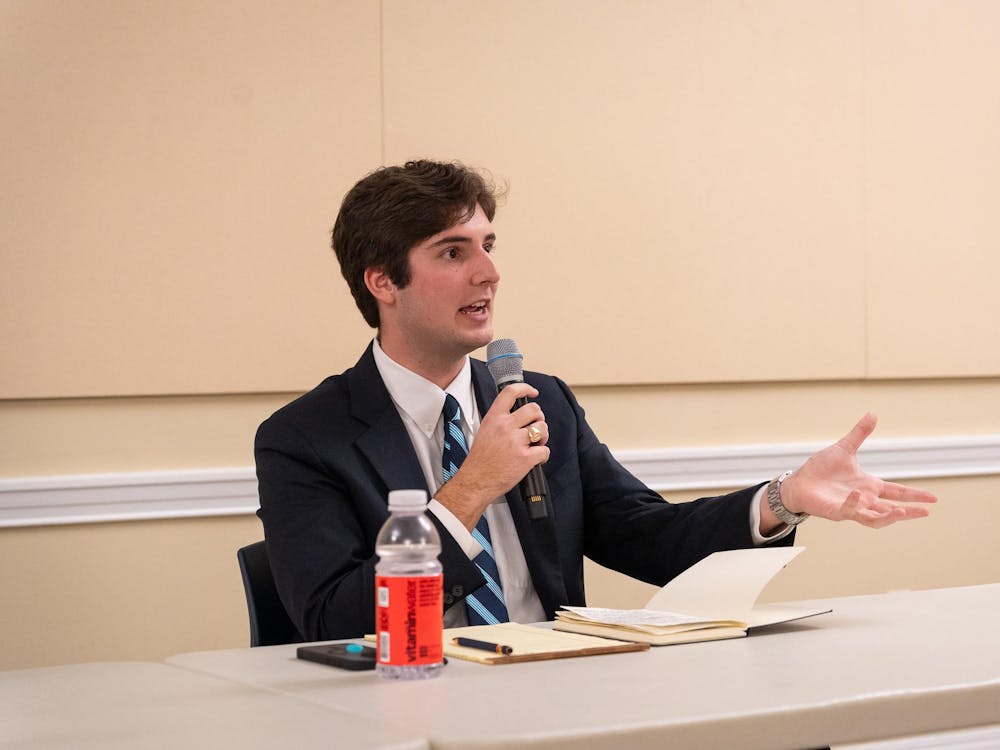The Honor Committee held its second meeting of the semester Sunday, with the agenda centering on ways to make the Honor process more accessible for students. The Committee heard updates on the Contributory Health Impairment procedures and discussed ways to incentivise students who submit informed retractions to attend their panel for sanction.
The Committee discussed changes to its CHI process. Students accused of an Honor offense may request a CHI hearing when they believe they may be affected by a health impairment that caused or significantly contributed to them committing the offense.
Specifically, the Committee talked about ways to make the CHI forms more accessible for students who are non-native English speakers or who may have a disability that makes it difficult to access the forms.
Thomas Ackleson, Committee chair and fourth-year Engineering student, mentioned ensuring that Honor’s website is in compliance with the Americans with Disabilities Act’s provisions on internet accessibility.
“We have to make sure that everything on the website is readable out loud, with a button you can press,” Ackleson said. “We’re going to be working with Student Health and Wellness to enforce that.”
Seamus Oliver, Policy and Procedure subcommittee chair and fourth-year College student, mentioned the Committee’s goal to increase attendance by students who have committed honor offenses at their panels for sanction during the informed retraction process.
By filing an IR, students who have been reported to the Committee admit violations and agree to make amends. A panel for sanctions is the last step of the IR process and is made up of five randomly selected Committee representatives. The panel ultimately decides if the sanctions outlined in the informed retraction form are appropriate.
As it currently stands, students who file an informed retraction have three options during the hearing process. Firstly, students can attend their panel for sanctions and have counsel present. Secondly, students can attend their panel for sanctions but waive their right to counsel. The third option allows students to avoid attending their panel for sanctions but instead agree to work with the Committee to provide a statement.
The third option is what the Committee hopes to modify. In particular, Oliver mentioned changing the language of the informed retraction form to encourage students to attend their panel for sanction whenever possible.
“[By not attending the panel for sanctions] the student is waiving the opportunity to provide context on what they feel may be mitigating circumstances … and the ways that they’ve already brought themselves closer to the community of trust,” Oliver said.
Genny Freed, vice chair for sanctions and third-year College student, expanded on changes to the informed retraction form. Freed brought up the idea of adding a checkbox next to the third option on the informed retraction form, indicating that the student understands the implications of not attending their panel for sanctions.
“[The checkbox] could say something like ‘I understand that by not attending my [panel for sanctions], I am waiving my opportunity to ask or answer questions from the panelists or expand further on the circumstances of my offense,’” Freed said.
Honor plans to continue assessing the informed retraction bylaws and expects to work with the International Studies Office on translating documents.
The Committee will reconvene Sunday for their third meeting of the semester.







